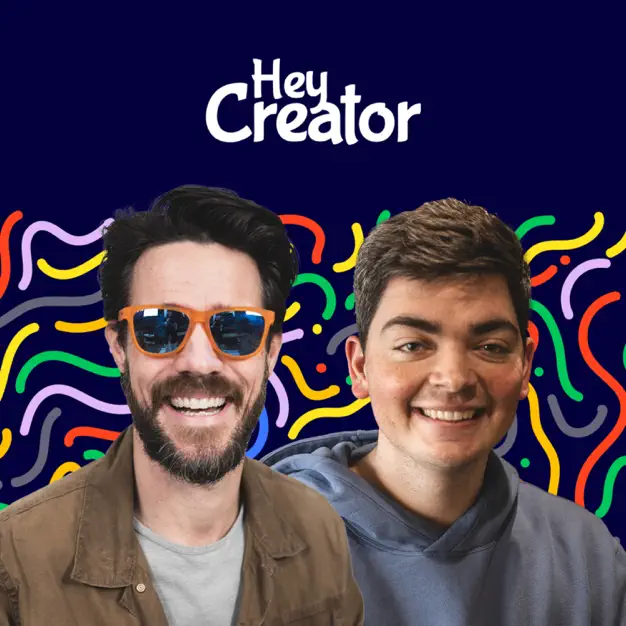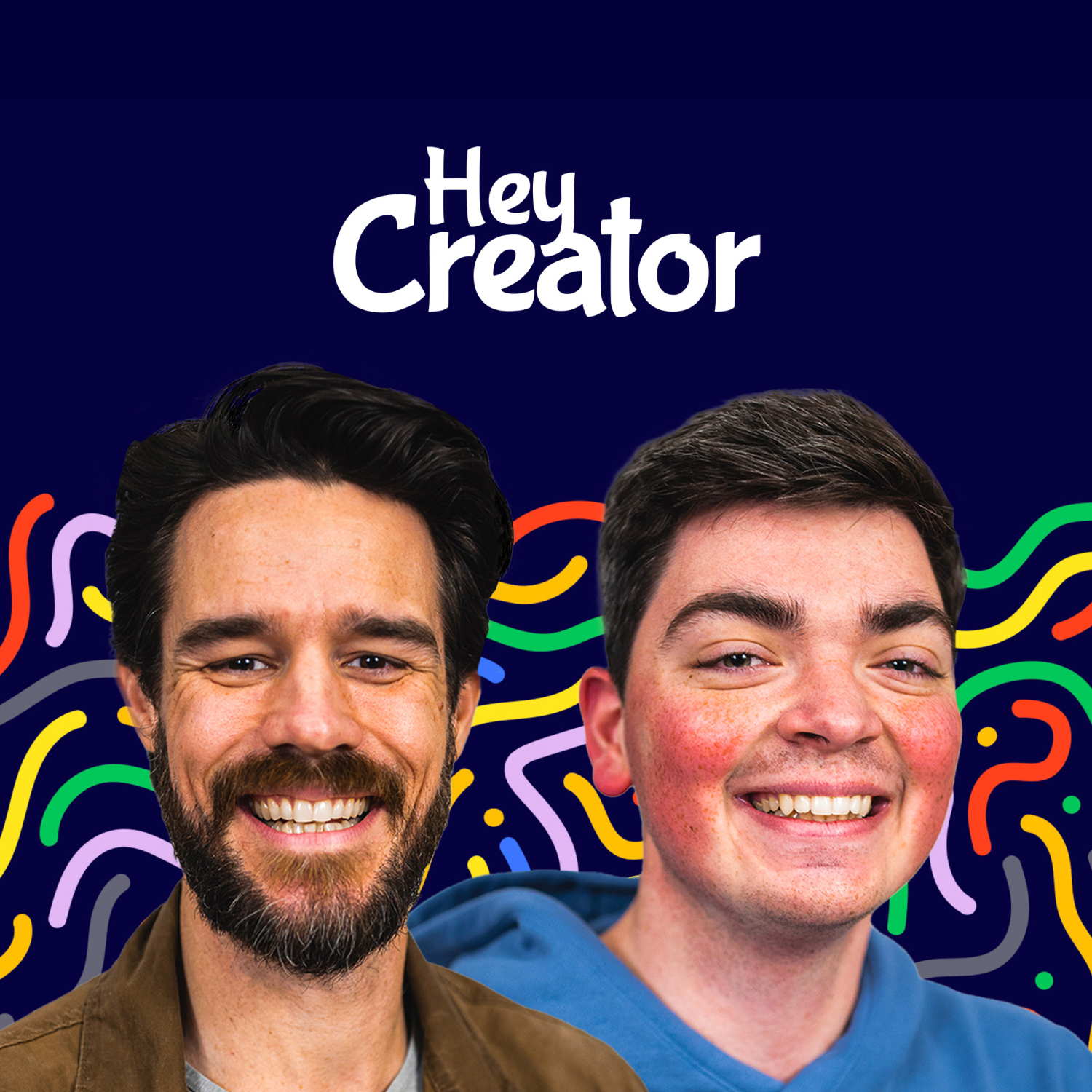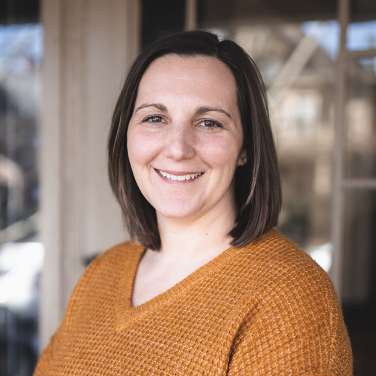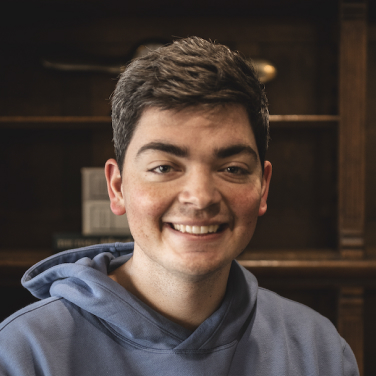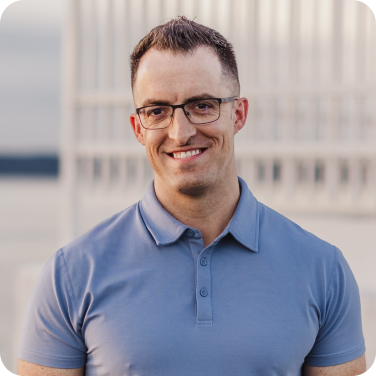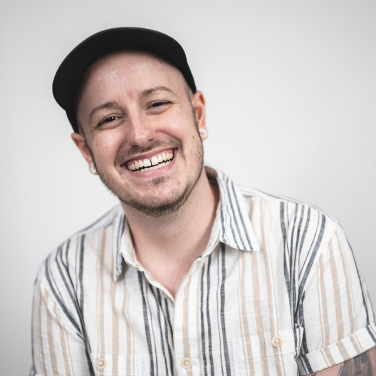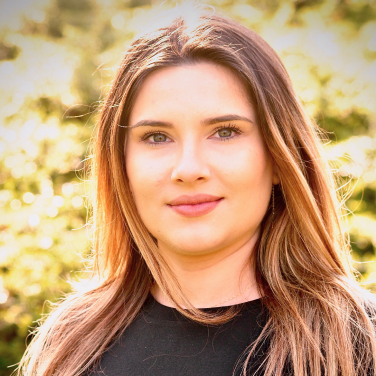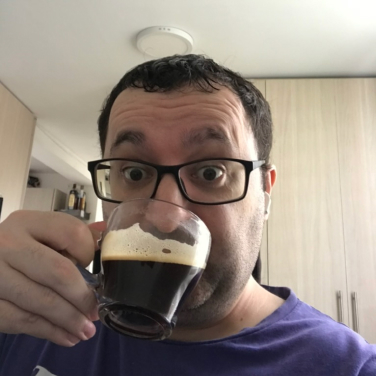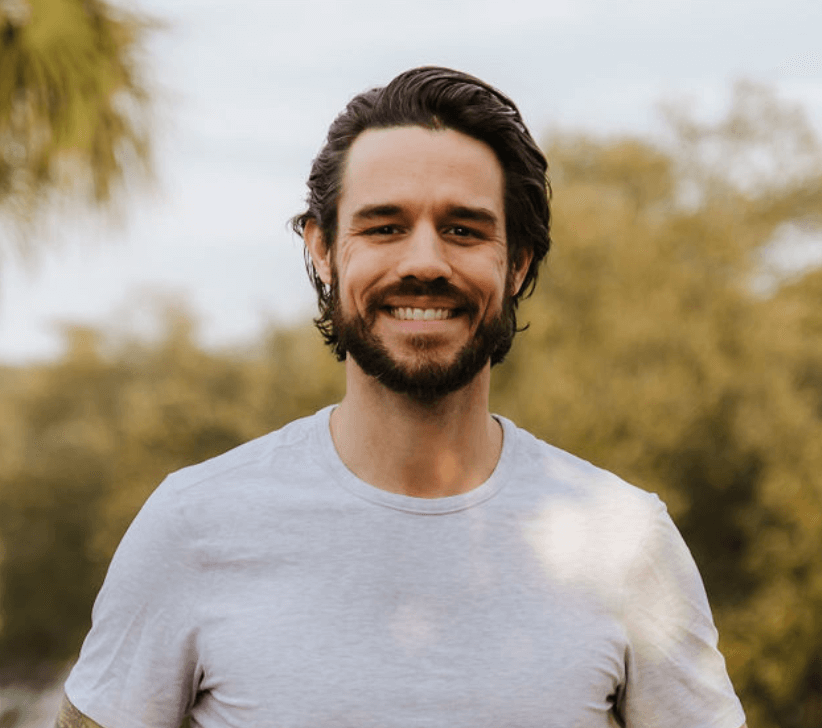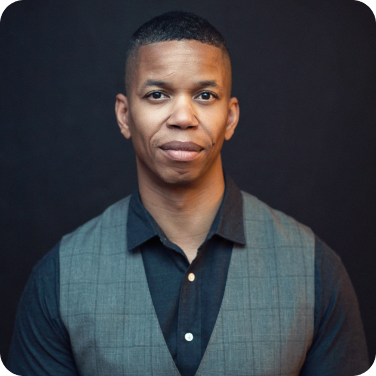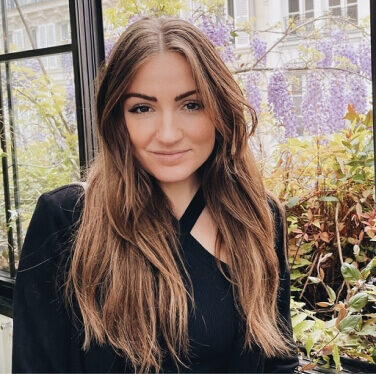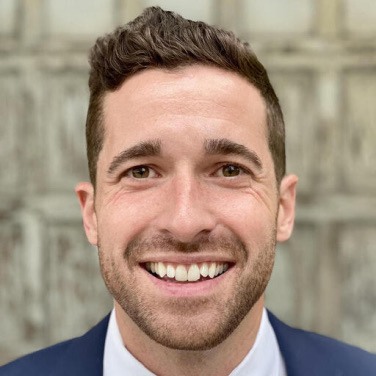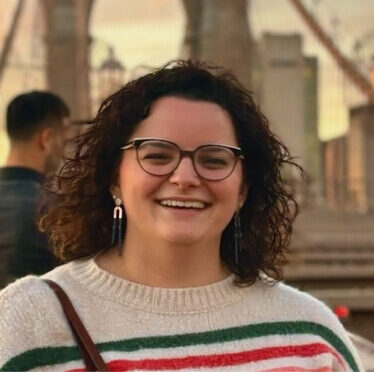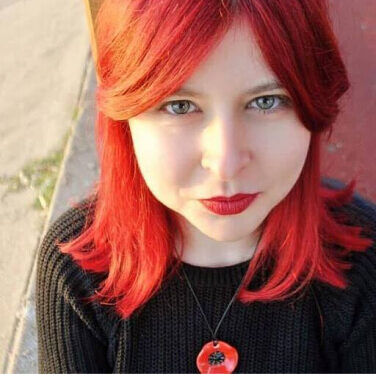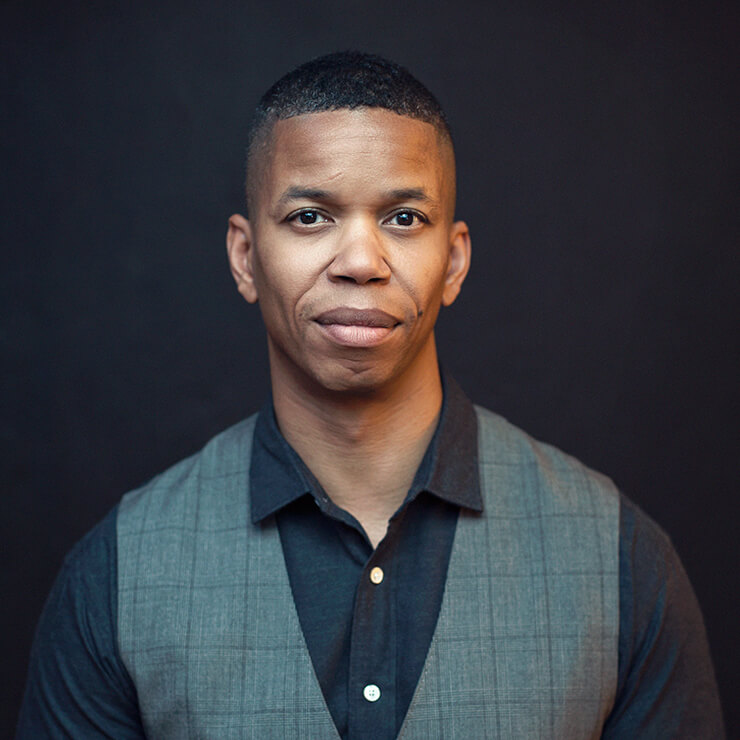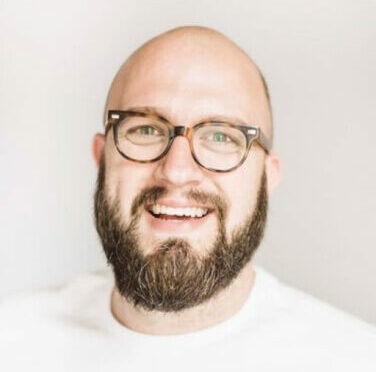[00:00:00] Matt Ragland: HeyCreators. I want to tell you about the sponsor of today’s show and it is Riverside FM. Now I love using Riverside for the HeyCreator podcast, but we use it at HeyCreator for many other things, including client interviews and community calls. At times it is. It is the best tool that I have found for recording podcast episodes, either by myself here with Tim or with our guests.
[00:00:27] There are several reasons that we chose Riverside to be the tool of choice for the HeyCreator podcast, but let me give you a few of my favorites. The very first one is the ease of use and the quality of the audio. All I have to do is send a link to the guest and they can join. There’s no additional software for them to download or anything special for them to do.
[00:00:47] It is so easy. The other big thing that I love about Riverside is how it records all of the audio and video locally and individually per guest. What that means is if someone drops a connection, it doesn’t affect anyone else’s feed. It also means that if someone has some background noise going on or something that could affect other people on other recording platforms.
[00:01:10] Riverside isolates all of those tracks, which makes it really easy to clean up in post production. Another great feature that Riverside has come out with recently is their AI clip generator. This makes it so much faster and easier to get those short form vertical videos from the best moments of the Haker series.
[00:01:26] I highly recommend using Riverside FM for your podcast. And to get a special rate, all you have to do is go to riverside. fm and use the coupon code. Hey, creator. That’s one word, HeyCreator for 15 percent off any Riverside plan.
[00:01:41] HeyCreators, Matt here. And in today’s episode of HeyCreator, I’m excited to talk to you about equity as creators, which is not something that we talk about a whole lot, especially when it comes to getting equity in other businesses that you didn’t start. We share a few recent examples of this happening, including Marques Brownlee’s deal as the new face of Ridge and then James Clear and Tim Ferriss becoming some of the founding partners and investors with the new Authors Equity Publishing House.
[00:02:14] Tim even tells a cool story about a friend of his that now owns a part of an English soccer club. So if you’ve seen something like Welcome to Wrexham, then you’re really going to like this story as well. Tim and I had so much fun going over these examples in this episode. There’s a lot of actionable advice that you can learn from as a creator to own equity in a business.
[00:02:41] Tim, did you see that MKBHD Marques Brownlee? is now a board member and the chief creative officer at Ridge. I did.
[00:02:51] Tim Forkin: And I also saw your reply underneath it that the CEO, I think in August posted a tweet where he said he’s looking to spend a million dollars and give equity in Ridge to a creator to be like the face or like the
[00:03:04] Matt Ragland: creative director of.
[00:03:06] Rich. Yeah, I think this is super interesting because we’ve seen creators like point their audience, point their influence at products before, and that could be through an affiliate deal. It could be like, you know, Mr. Beast has like feastables, but this is the first time that I’ve seen a creator, like not just go on the cap table, but also like take a seat at the board.
[00:03:32] As soon as I saw that, I
[00:03:33] Tim Forkin: was like, wow, how cool would it be to be a part of a conversation? Of the, to make decisions for a company that I use. Like I’m just thinking of like all the brands that I I’m wearing a Lululemon hoodie right now. I’m a big, like Nike, Nike guy, usually. And obviously the, the scale and the, the, how big of a creator I’d need to be, to be making decisions for those companies, obviously that’s massive.
[00:03:55] Just the idea. That you have a say in your favorite brands because of how much content you made because of how much you’ve resonated with an audience online. That’s wildly intriguing to me.
[00:04:05] Matt Ragland: What I think is interesting about this is MKBHD does these reviews on tech products and like everyday carry products.
[00:04:15] And so there’s a lot of alignment. And it makes me wonder about like, so for me, I would love to be a part of Huckberry’s brand, but I don’t create any content that Huckberry would want to do anything with. Which is another conversation, but it does, it makes me think about are there brands that I want to work with that I really admire that I think are super cool?
[00:04:36] That would like, want to bring me on. Should that be even a decision that I’m like making when it comes to like starting the content that I, that I want to do.
[00:04:46] Tim Forkin: So in your case, like you want to be perfectly aligned with a brand and you want the brand to see you and notice you, or you want to be able to pitch them and just say, Hey, very clearly I’m the guy.
[00:04:55] For you. Right. And then in the case of Marques Brownlee, you’re like, this is a product that he uses. He does every everyday carry videos. So it perfectly makes sense. I’m really interested in like, can you get a formula one driver to promote like a Starbucks drink or just like these random partnerships where the audiences actually are overlapped, but it doesn’t like seamless, not immediately obvious.
[00:05:19] That’s really interesting to me too.
[00:05:20] Matt Ragland: What we’re looking at, even on this though, is how do we get, like, equity in what we’re doing as creators. And one way that this, I saw this happen firsthand a number, a number of years ago, back in 2015, is that, uh, Pat Flynn came on the cap table at ConvertKit really early on.
[00:05:43] Like, obviously it was very aligned. He was a believer of the product and what Nathan was doing, but that was like, that has been a huge thing for Pat to like, have that, have that equity investment, then he would promote ConvertKit. And like, he’s continued to do that for a number of years. He’s like, talks about it when he speaks.
[00:06:00] So it’s something that has been around for, uh, A little while, but it has become much more common. And I think what’s interesting about what Marques did is that he is coming on the board. Like he is going to be a part of an existing company and like coming into the fold there. It’s a little different than what like Mr.
[00:06:20] Beast did with Feastables or, or, you know, What, uh, Logan Paul and KSI did with Prime. It’s like, Hey, we’re just going to like create this like single product out of nowhere. And we’re going to like, obviously let other people run it. Now they haven’t said like how much like day to day work. Like I, I read in the press release that, uh, you know, Brownlee’s day to day involvement is still unclear.
[00:06:43] It’s like what he’ll be doing. I was like, he will not be doing like anything with it day to day. It’s just my guess is he’ll get to drop in and do his thing, which is. Probably all they want him to do as well. It’s like, hey, you should, you should do this. But having someone of his caliber on, on board, it’s interesting to see like Marques coming into the fold like this.
[00:07:06] Tim Forkin: The offer. That Marques has can vary, right? He can do one product with them. He can be like an internal, like reviewer or like public face. Like he can obviously do videos for Ridge. There’s, there’s a million different ways to cut it. And. I got a call one time from a guy in my network, John Barchard, and the, the gist of his message was like, Hey, you need to stick your creator, but you need to start thinking about how you can own parts of someone else’s business in exchange for either making content about them or being their content team.
[00:07:42] And that opens you up to, at any scale, you can be as big as Marques Brownlee to have a partnership with a major company in the everyday carry space. Or you can be a micro creator who goes to a local business and it says, Hey, I have a cute dog. I will use your dog stores, toys in my videos in exchange for 10 percent of the sales on this product.
[00:08:09] Let’s just, just do this one, like individual product. As an example, you can, any of us, if we’ve been creating content for. Maybe a few months or a year, have any sort of slight traction can do what Marques Brownlee has done with Ridge for the other things we’re going to talk about. And that was such a shift for me.
[00:08:29] And I still like, I’m not the person who’s going to send a cold email and say, Hey, can I own part of your business in exchange for content? That’s, that’s a daunting thing to do. And we can talk about like the ways you and I would go about doing that. I’m a big fan of like, just seeing when the door opens and I want to open that door for whoever’s listening is like, Hey, there’s a chance you could own part of either a small business in your, in your neighborhood, or when you get big enough, like a company that you use.
[00:08:55] Matt Ragland: Yeah. I’m glad you brought that up and like, took it down for like, you know, Marques and I think he has 18 million YouTube subscribers and someone who has like 18. Subscribers or 18 followers, because if you’re good at making content and Justin Moore talked about this, if you’re good at making content and you can demonstrate that to other businesses, to other brands, then yeah, go to them and say like, I will be your internal video team.
[00:09:18] I guarantee you there are people listening to this that are better at video and audio and writing and marketing, especially in the online world than like, Local businesses or maybe smaller brands that like that don’t know the things that you know as well But they have more of an audience you have the skill Let’s bring those two things together and whether it’s through like straight up pay or rev share or equity down the road Those are things that you want to be thinking about I want you to be like Nathan Barry talks about this on billion dollar creator a lot of great great podcasts to check out This is something that creators need to think more about
[00:09:54] Tim Forkin: the equity part is like the rare You The thing that you don’t hear people mention is you can create content for a brand or a company in exchange for ownership of the company.
[00:10:05] Now, whether that’s 15%, 10%, 5%, you could, maybe you have an awesome deal where you already have a full content team and you could do all of the marketing for 25 percent of someone’s business. And any bit more than that, I don’t know. I have, like, I don’t have any knowledge of that happening, but it could the possibility of having a cut of every sale that walks through the store, your neighborhood’s door, because you’re the one in charge of making content for them.
[00:10:29] This is a door that I could not see, but the call shocked me is like, I can, I can own parts of this sub shop in my neighborhood in exchange for partnering my podcast with their subs, you know, like maybe we do a live show in their sub shop. Just that idea alone is just. Mind boggling to
[00:10:48] Matt Ragland: me. The other creator equity deal that I saw online recently was Authors Equity, which is a group, a publishing house that’s coming together, a new publishing company that is backed by James Clear, Louise Penny, and Tim Ferriss.
[00:11:05] Now, Clear, you probably know, Atomic Habits, best selling non fiction book over the last five years. Uh, this press release, uh, says that it has sold more than 15 million copies, which is just insanity. Selling a million copies is really great. Selling 15 million, I don’t, I don’t know the, I don’t know all the numbers, but that is, that’s insane.
[00:11:26] And a couple of these things, like, stood, stood out to me, is that, Uh, Penny said that it’s time for a new way of doing business where the author is at the top of the pyramid. And there’s a couple other things that stood out to me in the press releases for this, but it is really interesting that the publishing model that has existed The traditional publishing is you get a big upfront advance, or I guess the, the big, the, the upfront advance depends on your audience and how they feel about the book, but then you just kind of, you write it and it gets edited and then it gets, gets launched and you do get some residuals or some profit share based on the book itself, but that’s normally pretty low overall, like where you make the most of your money for most authors is in the advance.
[00:12:12] But author’s equity has no advance, but it’s a lot more, uh, they say it’s a lot more support and then you have a bigger cut of the book when it comes out.
[00:12:21] Tim Forkin: Yeah. And wouldn’t not having the advance inspire you to write a better book? Obviously the goal for the author is to write the best book they can, but if you weren’t getting the money.
[00:12:32] I think it says in there, no advance, right?
[00:12:34] Matt Ragland: Yeah. It says no offering, no advances, but paying authors a higher percentage of the book’s profits.
[00:12:40] Tim Forkin: So I would be much more inclined to completely empty the notebook, make the most helpful or entertaining or what any, whatever the genre is, achieving that goal, I would, I would go all in on being the best I possibly could and promoting it and giving people the quotable things to share everything that goes into Writing a book, which is way more than I would ever know, I would go all in on that because the money is coming on the back end.
[00:13:06] If you get, maybe, maybe this is like a lazy mindset, but I don’t, I don’t think it is. I would write a much better book if I was depending on the finishing it as opposed to, Oh, I just got 200 grand to do this book. Like. They, they love it. Whatever
[00:13:22] Matt Ragland: I do, they’ll love. It’s interesting to me, like parts of it.
[00:13:24] I, it sounds like something that is more for established authors that they can afford to basically like, uh, survive while they’re writing the book, because even like Tim Ferriss himself, he said this on David Perrell’s, how I write podcasts again, another great one to check out is that if you can’t commit.
[00:13:43] A year. A focused year to writing the book, don’t do it. And I think about like, I can’t just focus on a book for a year, but that’s where a lot of like the advances can obviously come in really handy. If someone, you know, wants to give me 150 K, 200 K to spend a year writing a book, I, I will, you know, I will do that, but.
[00:14:07] It does make more sense for the more established author. I do, like, I think this is interesting. I think that it’s great, especially for people who have audiences and have more attention, like Tim, like James, that they can point towards their books or, and this is the other thing, like, we’ve seen the rise of, like, referral networks and, like, ConvertKit, Substack, Beehive all use this for email subscribers.
[00:14:30] Spark loop is. Like, how much better will your book be if James Clear and Tim Ferriss mention it in their newsletters a couple of times? So there’s like some, there’s some cross promotion there. They don’t say anything about that in the press release, but that is, that is another thing of like having a network of creators that are going to promote your book.
[00:14:49] That is, that’s huge.
[00:14:51] Tim Forkin: Yeah. Would you rather take X amount of money to write a book off a whim with a publishing company that thinks That you like working with, or do you want, I think part of this is like, you get to work with the people at Authors Equity as you write the book. So, how much better of a book are you going to write if you have James Clear and Tim Ferriss helping you write the book?
[00:15:11] I’m assuming help promote the book on the back end. The, the money is going to come out better. The impact is going to come out better because you are writing something that aligns or has been, you’ve been given the green light by these established authors.
[00:15:29] Matt Ragland: When I think about the times in my life, when I’ve felt the most inspired, productive, and motivated, there are all times in my life where I’ve been around a group of people on the same path as me, these communities gave me the support. Encouragement and motivation that I needed to stay on the path and be accountable for the goals that I set, especially when I hit a rough patch, like if a launch didn’t go very well, or if there was a piece of content that I worked really hard on and it just didn’t really pan out the way that I wanted it to.
[00:15:55] This is why we started the HeyCreator community. A place for you to connect with like minded creators, follow a proven roadmap for success, and get the support you need to build your creator business. And look, the people are the most important part of any community, but it’s more than just the people.
[00:16:10] It’s more than just the connection that you make, even though that is critical. You also get step by step training and direction from our team of creative experts. Plans start at just 39 per month with no long term commitments. Go to heycreator. com slash community to learn more and sign up for your first month.
[00:16:32] Okay, something else that I saw from James last month is he released his first app. It’s just called Atoms and it’s basically the condensed, like, helpful step by step App version of his book, atomic habits. Have you seen this?
[00:16:48] Tim Forkin: Yeah, I’m on the landing page right now. It’s, it’s literally just a countdown timer, the world’s most comprehensive app for building good habits and breaking bad ones.
[00:16:57] And I haven’t looked at the charts. I’m assuming it’s like one of the best performing apps right now, if the book is so big.
[00:17:03] Matt Ragland: Yeah, it’s, it’s doing well. I think what’s interesting about it is. Thinking about now, James would own the majority of the revenue of this app. So this is something else to think about when it comes to equity.
[00:17:16] So this isn’t necessarily like going on the cap table at something like Ridge. This isn’t like gathering tradition, some like traditional publishing talent together, along with buddies like Tim Ferriss and like combining. This is like more hardware. This is software. This is something where. You own like a significant portion of a high margin business, which is like often what software is.
[00:17:40] And I think it’s really interesting to think about if you’re teaching a specific type of framework or you have like a system that you, that you promote, like basically atomic habits is a habit development system is a mindset system. So. Is there something in software, or even with templates, in a really simple version, Thomas Frank does this, where you can help people implement the advice that you’re giving at a broader scale, whether that is like, say, podcast, YouTube video, or like, traditionally published book.
[00:18:13] Tim Forkin: You got me thinking about what the hate creator app would look like. You know, what, what the sprints that we’re doing in the community, can those be like modules of an actual app, not just like on circle and we love circle, but the hate creator, I’m just imagining like 10 years down the line. Like, what is the hate creator app?
[00:18:30] What is everything that they need to know? Um, and the fact that we would have what over 50 percent share on that, you know, that that’s the idea. That a creator can just make their own app. It’s pretty mind boggling. The development and like the coding and everything might be out of your reach. Well, you can get to the point where you are big enough where James Clear obviously is big enough.
[00:18:54] Yeah. James isn’t, isn’t coding up the app. No, he’s not. But his framework partnered with someone who can, and I’m assuming he has way more than 50%. That then the app, maybe it’s a dollar or if it’s free, there’s ads. However, he’s broken it down. The rev
[00:19:09] Matt Ragland: share on that is just insane. Yeah. I can’t say on, I’ll, we’ll come back to that, but I will say like on the pricing side, I did like click through it a little bit and I think it’s 16 a month or like 120 annually.
[00:19:22] And I got to tell you, people on Reddit are not happy about the price. But, you know, whether it’s Reddit or Hacker News or anything like that, if you post that you charge something for whether they be like, Hey, I can just like put this into a notebook and like, I can just track it that way. I’d be like, yeah, you can.
[00:19:38] And James Clear is going to make a whole lot of money on something that Reddit thinks is overpriced.
[00:19:45] Tim Forkin: Yeah,
[00:19:45] Matt Ragland: that’s
[00:19:45] Tim Forkin: always a bubble there. The, you can do anything and it’s going to get clowned on Reddit. I’m sure. I’m waiting for the day that the hate creator pod is clowned on Reddit, if it already isn’t.
[00:19:54] That’s, that’s
[00:19:54] Matt Ragland: how, you know, you’ve made it. That’s how, you know, you’re there. Like, how could anyone charge for this type of advice? I can just go watch it on YouTube. And yeah, I mean, you can, but there’s something, there’s something to be said about having a curated experience. There’s something I said about, I trust James to give me a, you know, to give me a framework that’s going to help me, uh, continue good habits and break, make good habits and break bad ones.
[00:20:18] I trust him. And that’s what it really comes down to. Like, I trust James to deliver a really like interesting, helpful, positive outcome for me. And so if he says that this app is the best way to go through this, it’s something that he personally has created, then yeah, I’m in. I’ll like, I’ll do it at least for a few months.
[00:20:39] Like I’ll give it a try.
[00:20:40] Tim Forkin: I think you’re outlining in this episode, we’ve, we’ve laid out the two ways that creators can get equity in businesses, whether it’s, you have the skills to make the content, maybe you’re an awesome writer, maybe you’re, you make videos, whatever your, your talent is, your podcast, whatever you can give those skills to a business in exchange for part of their business.
[00:21:02] And the other part of it is, can you create something that’s so valuable to people? That there’s, there can be an app for that. There can be, I mean, at the simplest level, a clothing brand, or there can be something physical or, or software from the ideas and the ethics of what you’ve made.
[00:21:21] Matt Ragland: Yeah. Food, drink, like Feastables and Prime.
[00:21:23] And there, yeah, that’s a really good way to think about it is like you either have skills. That can be a part of an existing business, or you have the resources, the audience to like, start, start the business, start the software product, do, do the thing on your own.
[00:21:41] Tim Forkin: And calling back to my guy, John, who we talked about earlier, John, months ago.
[00:21:47] told me his plan of offering his media capabilities, the audio visual stuff to an English soccer club. Yep. I believe they’re in the fifth division. They started off in the 17th division.
[00:21:59] Matt Ragland: Hey, I’m on the way up. Cause what’s Wrexham’s in like the second or is in like the third now. So, but they started, so they started around where like Wrexham what they are now, where Wrexham, welcome to Wrexham, by the way, where they are.
[00:22:12] They were at the beginning of the show when Ryan and Rob bought them.
[00:22:16] Tim Forkin: Yeah, and they’re featured in, I believe, at least one episode of Welcome to Wrexham. They partnered with a team on the rise in the English soccer slash football landscape in exchange for For the media capabilities that john and his team have, they have, the team has a coach that’s very like viral capable.
[00:22:37] Like he, I’m pretty sure he’s like interesting, very funny and easily presentable on social media guy. So if you have people creating content around him and the club, then Everything’s going to work from there. They’re, they’re going to get more supporters. They’re going to be able to invest more into their team and the, the, I don’t know the number of the percentage that John and his team own of the business for him to consult and provide the ability to go viral, the ability to create content around this team in exchange for a percentage of the profits.
[00:23:09] When I was told that, like, how many of us are thinking, Hey, I can own a pro sports team off of my ability to create content. Now we think like NFL, like big money. Like there’s no way I can’t name, maybe Mr. Beast, but I can’t really name another creator who has the money and pull to say, Hey, I want to own a sports franchise.
[00:23:29] I don’t, uh, an American one, any of the four major sports. But he found an English soccer team in the same way that, that Ryan Reynolds and, uh, give me the other guy’s name, Rob, Rob McElhaney, always sunny, baby, the way that they own a soccer team, you and I could do that if we found the right team with the right people.
[00:23:49] The right needs and the right skills. We can own a soccer team. That is crazy. It has been stressed to me numerous times how desperate businesses are for someone to come in and create content. It is a skill that is paramount. Every little business in your town wants to go viral. They want to have the restaurant wants to have a line out the door.
[00:24:14] The stores want their shelves to be empty. And if they can do that through TikTok, Twitter, any social media, and especially with the boom of TikTok shop, like that, that’s a whole other conversation we can have. Businesses desperately want the skills of. Can you go viral on short form? Can you write tweets that bang?
[00:24:36] Can you, can you make our business upscale into the internet age? And because we know that, then we know that you as the creator are so, so, so, so, so valuable.
[00:24:48] Matt Ragland: Yeah. I guarantee if you go on TikTok, if you on Instagram reels, you’re going to see a couple of examples of like. like sweaty startups, local businesses that have gone viral on those video.
[00:25:02] I like, I think I saw a, like, um, auto dealership that went viral for like some TikTok dance. And I don’t know if people still dance a lot on TikTok, but like, they saw an increase in sales. People came there, especially with the geo targeting, uh, capabilities of the location targeting capabilities of those two apps for better, for worse.
[00:25:21] We won’t talk about that right now. When you are like local SEO is going through TikTok. It’s going through Instagram reels when you place those location pins. So like, absolutely. I’m glad, I’m glad you said that because when you have these skills, if you can go to local businesses and say, Hey, I will bring your business into the internet age, they will like the right ones will respond to that.
[00:25:46] Tim Forkin: My friend JT runs the account for pop daddy popcorn, and I watched them go from something that is in. Local grocery stores, and I mean, it’s in the regional things to being the number one food category on TikTok shop. They are at the top. He blew up their account from 1000 followers to whatever they’re at now.
[00:26:09] I’m assuming it’s in the tens of not hundreds of thousands. I think it’s in the 10, 000. And they offer a pretty sure it’s like a three to 5 commission on every sale that they do, but their business exploded. And it’s solely because JT started going ham on TikTok. They blew up the business off of JT
[00:26:31] Matt Ragland: becoming a creator.
[00:26:32] Nearly 60, 000 followers, 59. 6k. Bold snacks made with a big heart. You can scroll down and see the exact moment in where they blew up. Last May they were doing Okay, November 2022 has a few, so basically they were at a few hundred views for the beginning of 2023 until May, and then they, like, over the summer they started doing much better, and then in the fall, the first video that I see JT on, at least from a thumbnail, Is 381, 000.
[00:27:02] The next one is 1. 1 million. And the one right before that, I can’t tell if he’s in it or not. It’s a bunch of, bunch of bros at a tailgate, but, uh, three, three point 3. 6, oh, there he is. Okay. So there’s JT 3. 6 million.
[00:27:17] Tim Forkin: And how lucky are they that JT is like in their family? Like this is their family business.
[00:27:22] How much it would cost to, and how much you could make being that creator for somebody’s business. Okay. That’s the point I’m trying to make is he got the skills somewhere, somehow to take over his family’s businesses, TikTok, blow the business up through short form. That’s really interesting to me on the sake of like, can I go do this or can someone go do this for someone else’s business?
[00:27:47] And I mean, JT’s in the family business, so he’s going to have some equity. Right. Some, some day, some day from the business, if he doesn’t already,
[00:27:55] Matt Ragland: I hope he’s got a little bit right now.
[00:27:56] Tim Forkin: Yeah. Me too. Because there’s a video in there where he says they went from doing 30 orders a day to a thousand orders a day.
[00:28:03] He had to pay all of his buddies 20 an hour to come work in the warehouse with him and knock this out, man. Like that was the start of it. They’ve been, they’ve been. At the top of TikTok shop sense. Hey
[00:28:20] Matt Ragland: creator. I have a secret weapon that I want to tell you about, but first I want to tell you how I use it. You know, those awesome HeyCreator newsletters that go out once or twice per week that sign off from me, Matt Ragland. Well, I’m not writing those not directly anyway, because every newsletter is researched, written, edited, and uploaded to ConvertKit by our automatic evergreen team at HeyCreator.
[00:28:43] And the reason those newsletters. sound like they’re coming from me is because they’re coming directly from the HeyCreator show along with special presentations that I’ve made in the community, keynote speeches, or other podcasts that I’ve been a guest on. Automatic Evergreen lets me send high converting quality newsletters on time every week with With a fraction of the time and attention that I used to give to a newsletter.
[00:29:03] And this is so valuable because it gives me more time to focus on the podcast and on the community. If you’re curious about how automatic evergreen can put your newsletter on autopilot and make you money, then click the link in the show notes to book a call.
[00:29:21] There’s another like side of this. We’ve talked about the creator side, but I also want you to think about this from a business perspective as well. Cause if you’re listening and you have a business or you have a software product or you are. Like thinking about how you can bring someone with the skills or with the influence into your company.
[00:29:41] There’s an example that I thought of, uh, that happened last fall when, uh, Deion Sanders, who, uh, multi sport athlete, big star, he became the head coach at the university of Colorado. And he caused like such a huge sensation at the year, they won a couple of games. That they weren’t expected to win. Deion coach prime wore these sunglasses and I don’t think like he had talked about any particular tie.
[00:30:07] He had, he had worn a couple of different pairs and all of a sudden he started wearing like these big, like mirror lens gold. They were very distinctive and it was a brand that people hadn’t really heard of before. It was a brand called blenders eyewear. And we’re like, And all of a sudden, like a week later, uh, Prime announced that he was like, he had a partnership, uh, set up with blenders and those, these were the only sunglasses he was going to wear.
[00:30:34] Joe Pomp on Twitter talked about this on X, where he recently launched the, this was in September, a line of custom sunglasses with blenders. And so. Coach prime handed out those sunglasses to everyone on the team and college football game day had just been in Boulder for the game. He gave them to Stephen A.
[00:30:54] Smith. He gave him to Shannon sharp. He gave him to Pat McAfee. He gave them to the rock. And so everyone wearing these blenders, I wear, uh, these blenders, sunglasses on national TV because blenders had reached out. I’m pretty sure. That they cold DM’ed either Deion or one of his sons and said, we noticed that, you know, Coach Prime is always wearing these sunglasses.
[00:31:16] We wear some different ones. We will make a specific Coach Prime sunglass for you. And this is what we can do for you. The day after everyone wore those shades, they did 1. 2 million dollars in one day. of sunglasses sales. These are 67 sunglasses. So y’all can do the math and don’t do, don’t do math live on podcast.
[00:31:37] But that is an insane, like it definitely paid off. Whatever they did definitely paid off. And I really like this as like, just, just the hustle mindset of like, I have sunglasses, I have a business that is going, that can reach that person.
[00:31:51] Tim Forkin: That’s incredible. Just the hustle to DM somebody, not to mention the, one of the most famous people in the world at that point, like Deion was on an absolute hot streak at that point, being the coach of Colorado, his son being the quarterback, incredible stuff.
[00:32:07] And the fact that they got a response is awesome.
[00:32:09] Matt Ragland: I think in the first week it did 4. 5 million, which is just wild. If I remember correctly from the tweet where the owner was talking about this, he even said like his dad gave him the idea that his dad’s watching be like, Hey, coach prime is wearing different sunglasses every single week from different brands.
[00:32:26] He is going to pick a brand and there’s no reason that it shouldn’t be blenders. You need to get on him. And just like, shoot your shot, put it out there. And obviously it paid off for them. And I’m glad you brought it down from like the big level. Like it’s fun to talk about big things. And I bet that the owner of blenders at the time was not feeling like, you know, maybe he wasn’t feeling like, Oh, coach prime is going to say yes.
[00:32:48] But just the willingness to ask and obviously have a good product, have something that, uh, would resonate. With your ideal, like influencer or partner is really important.
[00:32:56] Tim Forkin: There’s a pair of future guests that we’re going to have on that. I will tease out. I won’t mention them yet, but they told me their favorite thing in the world to do is cold email people.
[00:33:06] All they want to do is cold email people, cold DM people. Cause you never know who you’re going to meet or what’s going to happen. If you just send cold DMS all day, the partnerships that they have, the creators that they’ve worked with, the companies are some of the most famous brands that you can think of.
[00:33:19] And they got there by cold DMing people or making friends. Who could then get them in the right spot to the right person, but you never know if you don’t send that initial DM or ask somebody who might know, Hey, can you go get this person taking it all the way back down to the smaller scale for a second?
[00:33:36] If you were running a business and you DM someone and said, Hey, I want to pay you and or give you a percentage of my business. To make content for me, to write for me, to host a podcast under our name, whatever the skill is or whatever the influence they have is. If, if they’re a smaller creator and you don’t come off as like scammy, like if you show that you actually know who this creator is, that you’re following them, that you appreciate them, that you think they’d be a good fit for your specific business.
[00:34:05] And it doesn’t sound like a DM that there’s any like catch to, you know, like it’s a real thing. Like, Hey, can I get a meeting with you? Let’s talk about this stuff. I would be hard pressed to find a creator unless it’s like completely out of their niche or out of something that they talk about. If you think they’re a good fit for your business, I have, I have a hard time thinking that they would ever say no, or that they would at least like, like you’re going to take the meeting.
[00:34:26] Yeah. You’re, you’re going to take the meeting. I know as a creator for me, like I’ve done partnerships with, with some decently sized brands and the, Just seeing the name come across and I’ve never been offered equity in a company that I’ve worked with, but Lord knows I would have said yes for those companies that reached out, you know, I
[00:34:44] Matt Ragland: have a couple in mind for you.
[00:34:45] Yeah, absolutely.
[00:34:47] Tim Forkin: Whatever you want the creator to do, or as a creator, whatever you want to do for the company, if you don’t ask. Yeah,
[00:34:54] Matt Ragland: I can’t wait for, uh, your two buddies to come on. Because when you told me that story, I was like, man, I need to be braver. I need to be more courageous in my DMS and just like putting some, putting some things out there.
[00:35:09] Like just, just throw it out there and see, see what’s going to happen. Because just like, uh, you know, blenders reaching out to coach prime, I’m sure. Like. A lot of people would have thought like, I wear a lot of good or sunglasses or knock around or a couple of brands that I’ve worn in the past. I think shady rays are another one.
[00:35:26] I don’t know if any of them ever like DM prime before and said like, Hey, you know, we’d like for you to wear your sign. Like. Blenders is the one that did it. Or maybe the blenders is the one that went the furthest and obviously it’s paid off for them in a really big way. So I would encourage you as you’re listening, like probably that’s one of the big takeaways for this is like one, look for opportunities for you to create partnerships, to have equity in either businesses that exist or create your own business.
[00:35:55] Equity driven like opportunities through merchandise, through software, through like even food, food and beverage, but then also like how many connections can I make through direct outreach, through cold DM, through cold email that, you know, we, we should, I can’t wait for that because I don’t want to like talk about cold DM process before we talk to them.
[00:36:18] When you have something that is worth sharing, when you have a business that is worth growing, then, like, you’re just creating more opportunity for yourself. And the more, like, the more outreach you take, the, I’m guessing, the more opportunities you’ll make.
[00:36:34] Tim Forkin: The other takeaway I want everyone to have is that the skills you have as a creator are enough to own someone else’s business with if you can write, if you can record podcasts, if you can make YouTube videos, if you can do actual like production videography or help others with their writing, whatever skills you have.
[00:36:54] That is enough to own a piece of someone else’s business. It doesn’t even have to be in the creative world. I mentioned earlier, you can own part of a sub shop, or a shoe store, or an insurance company, maybe even if you’re willing to make content about life insurance.
[00:37:10] Matt Ragland: I have a good example for this. So my friend Clark Buckner here in town, he runs a podcast production company called Relationary Marketing, and they Host and run podcasts for like big corporate brands here in Nashville.
[00:37:25] So they have a podcast with a Bridgestone tire and it’s mostly internal, but they do like some marketing stuff. Also they talk about like, Hey, here’s how, here’s how the tires come together. And like, here’s how we think about product development. Here’s how we think about, uh, logistics and shipping. Like, it’s pretty interesting.
[00:37:43] And now I will say like, I don’t know if Clark and them have any equity, but the ability to have a business. To have like a cut of something because you’re good at a particular thing. Like those opportunities exist. They also have a podcast with, uh, Jack Daniels, the first, like the first spirit led podcast in, in America was like produced by them.
[00:38:06] So there are ways, and it doesn’t have to be like in this like traditional creator way that we often talk about, but when you have these skills, You can give them to people that already have businesses in exchange for equity in exchange for obviously pay. But there are a lot of opportunities out there that I don’t think a lot of people are thinking about.
[00:38:24] Tim Forkin: There’s your homework. Find a bunch of inanimate objects in your house and ask them if they want to host a podcast with you. There you go.
[00:38:32] Matt Ragland: The other, maybe like no offense Tim, but maybe the more real bit of homework is I want you to make a list of 10 businesses, 10 people that you can reach out to either to provide content to them or to request content from them and get an idea.
[00:38:52] Maybe you just start with some kind of pay and maybe it goes into like an affiliate slash rev share, but eventually like you can even start it by saying like, Hey, I would like to have an equity investment in your company, and I believe that by using my skills, or by using my skills, you will be able to increase sales, which will increase your revenue and profit and all those good things.
[00:39:13] Let’s do a test run. That’s something like, that’s something we’ll talk about in the episode with, with your, with your two friends, because I bet they have some ideas on how to like, how to stage that and phase it and kind of like go, go the way. But make that list of. Let’s just start with 10 businesses or 10 people that you want to partner with and get ready for, get ready for some cold DMs.
[00:39:39] Thank you for listening to the HeyCreator podcast. This show was produced by Tim Forkin and would not be possible without the The support of our incredible team at HeyCreator and the HeyCreator community. Make sure you connect with us on all of the socials at HeyCreator Hey, and for more information on our company, go to heycreator.
[00:39:57] com and also sign up for the newsletter while you’re there. See you next time.



